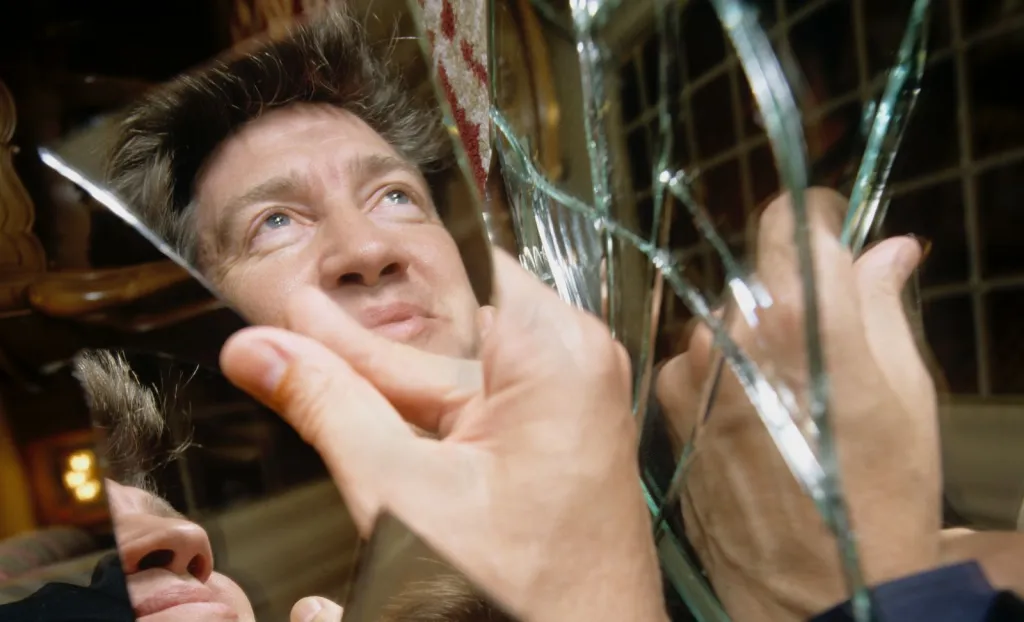




Dir.: Alexandre O. Philippe; Documentary with Amy Nicholson, Rodney Asher, John Waters, Karyn Kusama, David Lowery, Justin Benson, Aaron Morehead; USA, 108′
Swiss born director Alexandre O. Philippe has created a niche for himself with a clutch of informative film essays exploring late twentieth century American Horror cinema in Memory: The origins of Alien, Hitchcock’s shower scene in 78/52 and Leap of Faith: William Friedkin on The Exorcist. With LYNCH/OZ he takes a look at David Lynch, arguably the world’s most enigmatic living director, with the help of seven filmmakers and one film critic.
Told In six chapters the film goes back through the annuls with extensive clips from The Wizard of Oz and comes to a definitive conclusion: That David Lynch is completely obsessed by this “Dada picture” of Hollywood, directed by Fleming in 1939, the same year he finished Gone with the Wind.
David Lynch is well-known for not wanting to discuss any of his films. But when asked if Wizard influenced him – he replies: “Not a day that goes by that I don’t think about Wizard of Oz“.
Billowing curtains feature heavily in the Lynch archive, so it seems appropriate that each segment of Philippe’s documentary opens and closes with plush green drapes. Critic Amy Nicholson kicks off proceedings which her chapter entitled “Wind”, highlighting the many connections between Wizard and the Lynch oeuvre. There are the ruby slippers (Blue Velvet and the Twin Peak series); the man behind the curtains who (re)appears in Mulholland Drive; Dorothy (sic) Vallens in Blue Velvet and the wind – which captions this chapter – in Eraserhead.
But the focus is on two worlds where the Lynchian protagonists alongside Dorothy and her re-incarnations exist side in a parallel universe: reality and fantasy. Like Lolita, who was forced to live in two disconnected hemispheres: that of the schoolgirl and the mature man’s lover, Mullholland Drive is perhaps he best example of this dichotomy. We watch an ingénue grow into a mature woman and actor, but at the same time, the traumata brought on by the chaos that surrounds her, prevents Lolita from really growing, forcing her to adjust to an alien world of grown-ups in the film business. Meanwhile her friends’ delusions are a state of induced schizophrenia.
David Lowery, in chapter V (“Judy”), wants to save Dorothy and Judy Garland, one of the many doppelgängers that inhabit the Lynchian universe. Garland’s personal tragedy being pre-played in Wizard. In chapter IV (“Maltitudes”), director Karyn Kusama discusses reality and transformation, seen when The Yellow Brick Road morphs into Lynch’s Lost Highway. John Waters is his usual sardonic self, talking about his friendship with Lynch and their parallel careers in chapter III (“Kindred”). And Rodney Asher (“Membranes”, Chapter II), is still fixating on his feature Room 237 and its relationship to Kubrick’s The Shining, trying to expound his thesis of original and remake in general discussion.
The Peter Pan syndrome is mentioned, both in connection with Lynch himself and the Dorothy character. And the evil witch in Wizard is compared to Kurtz in Coppola’s Apocalypse Now, him being both wizard and witch, his own destructive doppelgänger.
Some try to make Wizard into a film noir, but it is all genres rolled into one: Musical, thriller, comedy, horror and Sci-fi. Corruption couched in suburban perfection is the overriding theme in the Lynch cycle, and best showcased in the Twin Peaks series. Lynch tries to liberate Dorothy in Twin Peaks:The Return. But Garland was an unhappy Wendy in the adult world of her Peter Pan universe, crushed by the Neverland pirates of the film industry. A happy home-coming only happens in the movies.
DoP Robert Muratore and editor David Lawrence manage the treasure trove of clips and material seamlessly. LYNCH/OZ is a labour of love, and a gratifying compendium of film history. AS
IN CINEMAS NATIONWIDE FROM 2 DECEMBER 2022